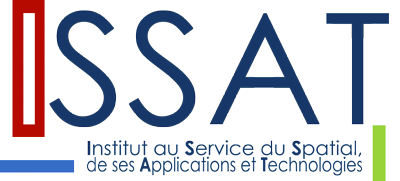aller au menu | aller au contenu


Space applications
training courses
Courses
Master 2 Enjeux du Spatial et Nouvelles Applications - NEW SPACE
- Organisations :
- Université Paris-Saclay
(Université Paris-Saclay) - UVSQ
(UVSQ - Université de Versailles Saint-Quentin-en-Yvelines (partenaire de Univ. Paris Saclay))
- Université Paris-Saclay
- Way of training : Initial education - Life-long learning
- Language(s): French
- Place: Paris (French Regions: Ile-de-France)
- Prepared diploma/grade/title: Master or DNM: French National Master Degree
- 1st required level : French baccalauréat + 4
- VAE (Validation of Acquired Experiences): Yes
- This training is included in RNCP / RS
Course Details
Objectives : Master's degree's mention in Earth and Planetary Sciences, Environment:
This training aims to provide knowledge of the entire chain, from the concept of scientific observation instrument to the use of data in order to meet market demands and new professions related to emerging applications ( Miniaturization of satellites, Cubesats, Satellite fleets, Drones, etc.). This training is therefore strongly oriented towards the quality of observation and data by providing a better understanding of the emergence of instrumental concepts, AIT / AIV approaches (integration and tests), data analyzes and validation of final products.
It integrates phases of practical examples in the form of team projects tutored on concrete cases (Learning by doing) and an internship in a company or in a laboratory. This training aims to meet the needs of the private sector, of so-called "instrumental" public research laboratories, but can continue with the preparation of a doctorate, ideally within the framework of CIFRE grants because of the important needs concerning innovation. in this sector.
Public concerned : At least Master 1 or equivalent
Master 2 or Engineering degree
Atypical profiles on study of the file
Possibility of a double degree in the last year of engineering school
Degree Level (EU) : 7 - (EQC level or equivalent)
Acquired skills during the training : Distinguish with precision the different phases, stages, stakeholders, issues of a Space instrument within the framework of a scientific instrumental mission.
Propose and conceive the design of a satellite, its instrumentation suite and its technical subsystems, corresponding to a precise scientific objective by means of a CNES software suite.
Sizing, producing and testing a mechanical or mechatronic part intended for integration on a satellite, using a FABLAB and a space test platform (PIT at the OVSQ).
Correlate a scientific question relating to a planetary environment and the appropriate chain of sensors.
Design and test the entire chain of acquisition and processing of scientific data produced by a space instrument.
Collaborate effectively during a long technical team project in order to design all or part of a satellite.
Targeted careers : The professions envisaged at the end of the typical course
-Engineers in the new-space sectors: Study engineer, Systems engineer, Opto-electronic engineer, Sales engineer
-Project manager
-Data scientists and professions related to the cross-exploitation of spatial data and the implementation of application solutions
-Consultant for the emergence and definition of need
Duration and terms : 1 year
Notes : UVSQ's Unit :
Observatoire de Versailles St-Quentin-en-Yvelines
11 boulevard d'Alembert
78280 Guyancourt cedex
Partnerships with national organisations : Laboratoire Atmosphères, Milieux, Observations Spatiales.
Dedicated web site : https://www.universite-paris-saclay.fr/formation/master/sciences-de-la-terre-et-des-planetes-environnement/m2-enjeux-du-spatial-et-nouvelles-applications-new-space
Space Technologies and Scientific Disciplines
- Data processing and analysis (Signal and image processing, big data, learning algorithms, artificial intelligence...)
- Telecommunications (Space communications, Information and Communication Technologies, Internet of Things)
- Earth observation (Remote sensing, GIS, geomatics)